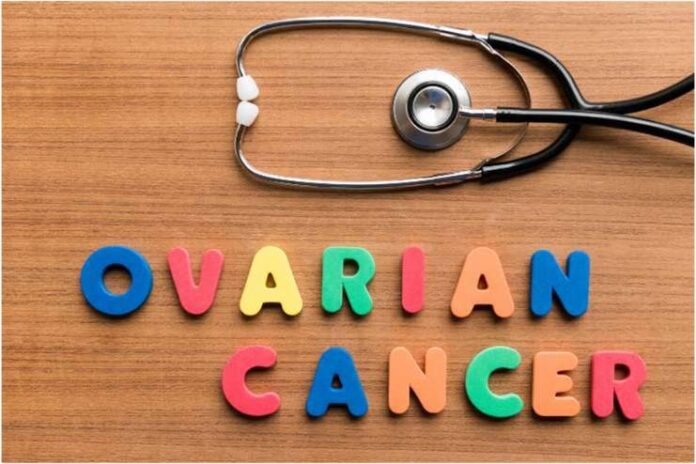Affiliate Disclaimer
Some links in this article are affiliate links. We may earn a small commission if you make a purchase through these links, at no extra cost to you. We only recommend products we find useful to our readersEverybody possesses BRCA1 and BRCA2 genes. These genes typically guard against cancer. They maintain the health of cells and fix damaged DNA. Healthcare providers perform genetic testing to identify gene mutations that can prevent normal functioning and defense. Among other cancers, ovarian cancer is significantly increased in risk when specific genes are mutated.
It is essential to understand the link between the BRCA gene and ovarian cancer to prevent and detect the disease early. This article discusses the BRCA gene and its association with ovarian cancer and highlights the need for preventive healthcare.

Fact #1: BRCA Gene Mutations Significantly Increase Ovarian Cancer Risk

Research has well established that mutations in the BRCA gene, specifically in the BRCA1 and BRCA2 genes, dramatically raise the probability of developing ovarian cancer. BRCA1 and BRCA2 are genes known to limit tumor growth, which implies they prevent cells from expanding at an excessive rate. Everyone possesses these genes. Alterations or mutations in these genes cause them to malfunction, resulting in cells growing out of control and ultimately developing cancer. In most cases, these genes repair damaged DNA, but when altered, they cannot function correctly, resulting in an increased risk of developing malignant growths.
Women who have BRCA1 mutations have a 39-44% chance of developing ovarian cancer in their lifetime. Those who have BRCA2 mutations have a risk that ranges from 11-17%. On the other hand, the danger for the general population is far smaller, only about 1.3%. Those who have a family history of the disease should undergo genetic testing. If BRCA gene mutations are discovered at an early stage, it is possible to take preventative measures to lower ovarian cancer risk.
Fact #2: BRCA Mutations Can Be Inherited from Either Parent

It is possible to inherit a detrimental BRCA1 or BRCA2 mutation from either parent. A parent with a mutation in one of these genes has a 50% probability of passing the mutation on to their offspring. All body cells have inherited mutations from birth, also known as germline mutations or variations. Because most embryos with a deleterious variant from each parent cannot develop, even if someone acquired a harmful variant in the BRCA1 or BRCA2 from one parent, they would have inherited a standard copy of that gene from the other parent. However, the typical copy may be altered or lost in specific bodily cells throughout a person’s life. A somatic alteration is what is known as such a transformation. Without functional BRCA1 or BRCA2 proteins, cells have the potential to increase uncontrollably and develop into cancer.
The significance of knowing one’s family medical history is shown by this inheritance pattern, which can offer important insights into cancer risks. The fact that any parent may carry a BRCA gene mutation emphasizes the importance of keeping thorough family medical histories. Genetic counseling is highly advised for those who have a family history of BRCA mutations. In addition to offering advice on testing and preventative actions, genetic counseling can provide crucial support and guidance in determining the likelihood of inherited mutations.
Fact #3: Early Detection Through Regular Screening is Crucial

For women with BRCA mutations, in particular, early identification is essential to ovarian cancer prevention. Routine screening can greatly enhance treatment outcomes by identifying the condition early on, when it is most treatable. Regular screening, which includes techniques like transvaginal ultrasound and CA-125 blood testing, should be given priority by women with BRCA mutations. Your doctor could suggest the CA 125 test as a means of screening for ovarian cancer if you have a significant family history of the disease or if you have an inherited gene that raises the risk of disease.
For individuals who are extremely high risk, some clinicians might suggest CA 125 testing in conjunction with transvaginal ultrasound every six to twelve months. On the other hand, it’s important to note that ovarian cancer patients may not always have elevated CA 125 levels. Furthermore, there is no proof that this screening lowers the risk of dying from ovarian cancer. A high CA 125 level may lead your healthcare professional to perform needless and maybe dangerous tests on you.
Fact #4: Preventive Measures Can Drastically Reduce Cancer Risk

It’s possible for women who have BRCA mutations to greatly lower their chance of developing ovarian cancer by taking preventive measures. Surgical procedures that are performed for preventative purposes, such as prophylactic oophorectomy (the removal of ovaries) and mastectomy (the removal of breasts), are among the most successful choices. A prophylactic surgery has the potential to reduce the risk of ovarian cancer by as much as 90 percent, while a prophylactic mastectomy has the potential to reduce the risk of breast cancer by as much as 95 percent. In an effort to avoid developing ovarian cancer, some women who have a family history of the disease choose to undergo the surgery to remove their fallopian tubes and ovaries. This is done in an effort to reduce the likelihood of developing the disease.
Women at high risk may also receive recommendations from genetic counselors regarding preventative measures. Additionally, surgeons are looking at whether or not removing the fallopian tubes alone, without also removing the ovaries, could provide a similar reduction in the chance of developing ovarian cancer. These preventative strategies perform exceptionally well in lowering the risk for individuals who carry the BRCA mutation. However, It is crucial to have a thorough understanding of the potential benefits and hazards involved with these surgical procedures.
Fact #5: Lifestyle Changes Can Also Help Lower Risk

One of the most critical factors in reducing the risk of developing ovarian cancer is making adjustments to your lifestyle. This is especially true for people who have BRCA mutations. It’s possible that certain malignancies, such as ovarian cancer, can be prevented by controlling your diet and lifestyle choices. Individuals who have been diagnosed with ovarian cancer may potentially benefit from an improved quality of life and survival rate if they adopt a healthy lifestyle and nutrition approach. Research indicates that diets abundant in nutrient-dense foods, such as leafy greens and the allium vegetables, foods high in flavonoid components, and green tea, are beneficial in preventing ovarian cancer in specific individuals.
Conclusion
Prevention and early identification of ovarian cancer depends on an understanding of the BRCA gene and its relationship to the disease. The risk increase associated with BRCA mutations, the fact that these mutations are inherited from either parent, the value of early detection through routine screening, the efficacy of preventive measures, and the contribution of lifestyle modifications to lowering risk are five life-saving facts.
Other Cancer Related Articles
References
- https://www.cancer.gov/about-cancer/causes-prevention/genetics/brca-fact-sheet
- https://www.mdanderson.org/publications/focused-on-health/brca-and-your-cancer-risk–what-you-need-to-know.h20-1592202.html
- https://www.mayoclinic.org/tests-procedures/brca-gene-test/about/pac-20384815
- https://www.texasoncology.com/services-and-treatments/genetic-testing/things-to-know-about-brca-genes
- https://www.acog.org/womens-health/faqs/brca1-and-brca2-mutations
- https://www.ncbi.nlm.nih.gov/books/NBK1247
- https://www.cancer.gov/about-cancer/causes-prevention/genetics/brca-fact-sheet
- https://www.mayoclinic.org/tests-procedures/ca-125-test/about/pac-20393295
- https://www.pennmedicine.org/cancer/about/focus-on-cancer/2019/october/whats-in-your-genes-brca
- https://www.cancer.org/research/acs-research-highlights/breast-cancer-research-highlights/screening—early-detection-studies/new-screening-strategies-may-help-women-with-genetic-risks.html
- https://www.who.int/news-room/fact-sheets/detail/cervical-cancer
- https://www.mskcc.org/cancer-care/types/ovarian/risk-prevention
- https://www.mdanderson.org/publications/focused-on-health/Ovarian-cancer-symptoms-and-prevention.h25Z1591413.html
- https://ocrahope.org/get-the-facts/causes-risk-factors
- https://www.wcrj.net/wp-content/uploads/sites/5/2020/01/e1466-Lifestyle-advice-to-reduce-ovarian-cancer-risk.pdf
- https://www.medicalnewstoday.com/articles/ovarian-cancer-and-diet#for-treatment
- https://ocrahope.org/news/ovarian-cancer-diet
- https://ovarian.org.uk/ovarian-cancer/ovarian-cancer-prevention-reduce-risk
- https://www.ncbi.nlm.nih.gov/pmc/articles/PMC10023359
In this Article


















